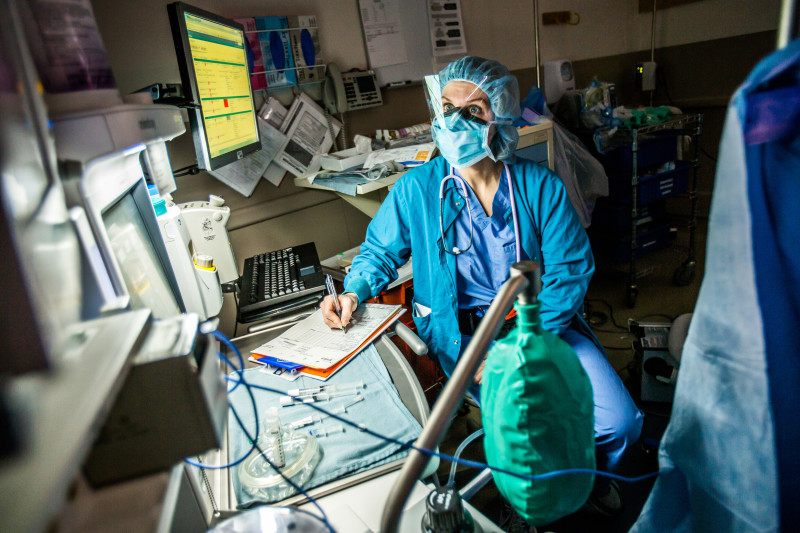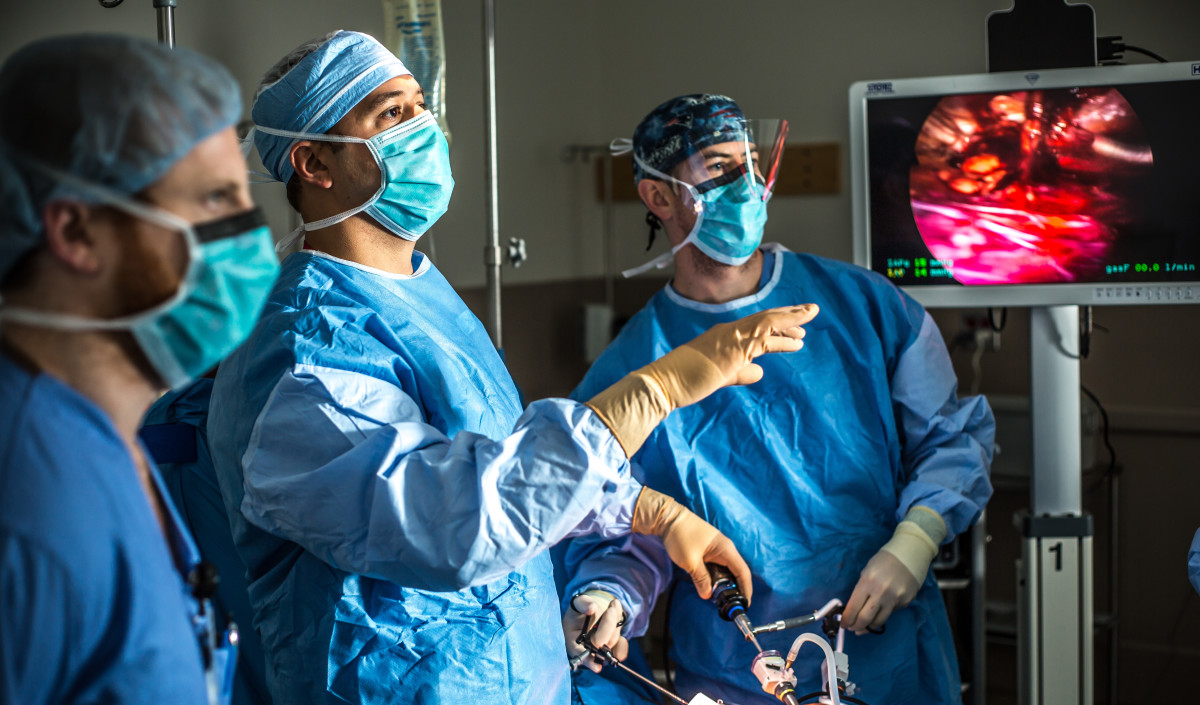Christiana Care Health System has been honored as one of only 52 institutions out of 517 by the American College of Surgeons (ACS) Clinical Congress for achieving meritorious outcomes in surgical patient care.
This is the third consecutive year that Christiana Care has been recognized through the organization’s National Surgical Quality Improvement Program — also known as ACS NSQIP — which is the only nationally validated quality-improvement program that measures and enhances the care of surgical patients.
“This recognition is a reflection of our staff’s commitment to advancing The Christiana Care Way so we can provide optimal health and an exceptional experience to our neighbors,” said Dennis R. Witmer, M.D., vice chair of Surgery for quality and safety at Christiana Care.
The ACS NSQIP program measures actual surgical results 30 days after the operation and makes risk adjustments to compensate for differences among patient populations and acuity levels. Participating hospitals are required to track the outcomes of inpatient and outpatient surgical procedures and then analyze their results, which direct patient safety initiatives within the hospital and impact the quality of surgical care.
Christiana Care was honored with ACS NSQIP recognition for its performance in eight clinical areas:
- Mortality
- Cardiac arrest and heart attack.
- Pneumonia.
- Unplanned intubation.
- Ventilator use for longer than 48 hours.
- Renal failure.
- Surgical-site infections.
- Urinary-tract infections.

Christiana Care manages more than 40,000 surgical procedures each year at both its hospitals — Christiana Hospital and Wilmington Hospital — and at its outpatient surgical centers. Since Christiana Care began its participation in NSQIP nearly eight years ago, the health system has experienced improvements in patient outcomes that include a reduction in the rates of wound infection, deep-vein thrombosis and several other post-operative complications.



